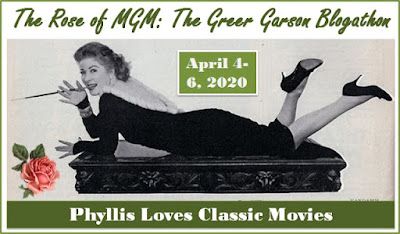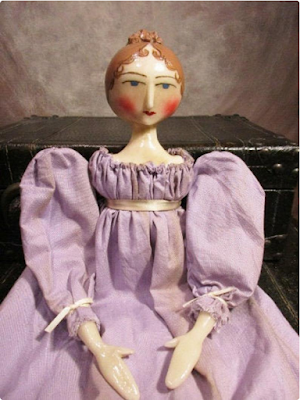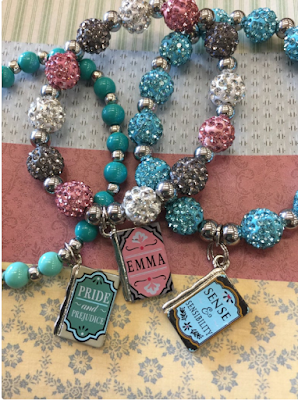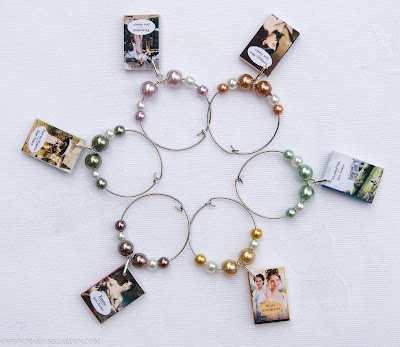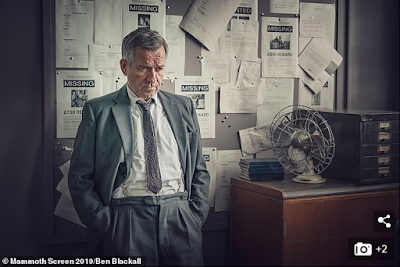Emma
directed by Autumn de Wilde
starring Anya Taylor-Joy, Johnny Flynn, Bill Nighy, Rupert Graves, Miranda Hart
I attended this movie with my eyes wide open. There was no chance of shocking me because I knew what was coming, at least, in terms of disagreeable content. So we might as well start there.
What Didn't Work
Nudity.
This, in my opinion, is a big, fat no-no for any Jane Austen film.
But, since I realize it was thrown in simply for shock value, I'm not going to linger too long on it.
You will see a full length, from the back, view of Mr. Knightley in his birthday suit, blessedly brief. I find it difficult to maintain my respect for one of my favorite Austen heroes after I've seen him naked. Weird how that works.
And you will see a side view of Emma's legs (be thankful it's just a side view) when she hikes her dress up to warm her shockingly bare legs and behind. Where did her undergarments vanish to? Your guess is as good as mine.
Music.
The soundtrack threw me a bit. My sister, bless her, brought up that the operatic songs are musical cues for the transitions to characters of different social status. Yay! I wish my brain had been capable of grasping that concept when I saw the film.
All I know is that I'm not really keen on, what I consider glaring, musical transitions from a fairly nice soundtrack to blaring operatic versions of hymns? Yeah, I don't know.
Frank Churchill.
Who? Oh, was he supposed to be important? You mean that random dude who really doesn't have much to do when he's on the screen and isn't really impacting Emma's decision making all that much?
Sadly, Frank Churchill was a non-character.
He's not verbally cruel to Jane Fairfax, which would have been an improvement because at least then we would have some sort of reason to hate him. As it is, he's lukewarm. You don't like him, you don't dislike him, he's just blah.
I will say that his most memorable moments are when he and Mr. Knightley encounter each other during parties, each eyeing the other as if he's intruded on the other's personal space bubble. Now that's funny.
Yellow.
I could have said costuming, but actually, I liked quite a bit of the costuming, especially the spencers which have the most gorgeous pleating!
So instead, let's just stick with yellow. There is nothing worse for a blonde than wearing an entire outfit in YELLOW. I don't know if it's Ms. de Wilde's favorite color, but there was far too much of it to suit anyone's tastes.
It's jarring and just doesn't work with the fashion.
Ringlets.
Oh dear.
What WERE the hairstylists thinking?!
If they were going to show us Emma with her hair up in the little rags to obtain the curls, then they absolutely CANNOT go with this teeny, tiny ringlets that will never, ever be a resulting end product of said rags.
Those curls are a physical impossibility and are, therefore, ridiculous.
Even worse, they don't suit Anna Taylor-Joy's face. She was the cutest when her hair was actually up in the rags. Explain that to me, if you can!
What Worked
And so we transition to what worked because I truly like a shocking amount of this film.
Mr. Woodhouse.
Bill Nighy is a genius.
I adore him and his portrayal of Mr. Woodhouse. He's far more agile than some of the other interpretations that I've seen, and it's entirely suitable to giggle when he and the footmen are chasing an elusive draft around the dining room.
He also plays a smallish role in getting Emma and Knightley together at the end of the film by deliberately having his footmen enclose Emma and Knightley in screens to protect them from that same elusive *cough* non-existent *cough* draft.
Bill Nighy is now my favorite actor in the role of Emma's father and I can hardly wait to see him again.
Apologies.
This might seem a strange thematic element, but it also happens to be true.
I never liked how, in other versions and the book itself, Emma never actually apologized to anyone.
This version has Emma realizing the error of her ways and actually making amends. She approaches Mr. Martin's farm with a basket of goodies and a sincere apology for her interference between him and Harriet. She also apologizes to Miss Bates (played by the memorable Miranda Hart of Call the Midwife fame).
This version of Emma is far more self-aware and capable of human sentiment and regret, and I admire that in her. She shed some sincere tears and then pressed on to make things right.
Emma and Knightley.
There are a few superficial things with each of them that I dislike.
Mr. Knightley has the most ghastly sideburns you've ever seen and his collar is so high that the sideburns are constantly ruffled by it. It just seems ungroomed and disheveled.
And Emma's curls and penchant for wearing yellow are absurd.
HOWEVER, when they are together, it's a winning match.
No, they're not Gwyneth Paltrow and Jeremy Northam.
They don't need to be because we've already had that pairing.
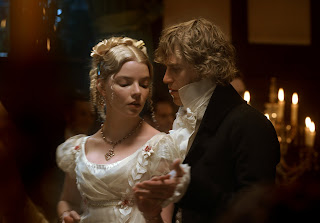
Instead, we're left with a slightly rawer romantic attachment. I feel like Johnny Flynn's Knightley is younger since they didn't ever declare the difference in their ages. He feels like the younger brother if that makes sense. He also suffers his emotions far more intensely than any other Knightley I've seen, which I ended up appreciating after giving his responses some thought.
There are moments during the one and only ball where you can tell his feelings for Emma are so strange and new and strong that he just doesn't know quite what to do with them. Little brushes of the hand awaken his love for her while they dance and it's enchanting to watch him come alive in that way. He responds in a shockingly physical way by chasing her carriage down to Highbury, a very un-Knightley like action, but it works for this version of Mr. Knightley.
Emma too finds herself in quite a state of shock after the ball, and if not for an interruption, when Mr. Knightley comes charging in, I believe they might have kissed then and there. But alas, they're interrupted, and we're given another scene with Knightley where we realize his romantic frustration. It's rather entertaining.
Overall Thoughts
This version of Emma is by no means a perfect adaptation.
There are elements that should have been added, like Harriet's collection of poems which the vicar adds to in his attempt to court Emma. And I may never recover from the oddity of having Mr. Knightley sing with Jane Fairfax.
But on the whole, the important additions made, like Emma's acknowledgment of her poor behavior and Mr. Knightley's obvious increase in affection for her, were both important and made the story more clear than it might have been otherwise.
I also appreciate and admire Harriet for looking Emma in the eye, in deep disappointment, and declaring that she had refused Mr. Martin because of Emma's insistence she could do better. I never imagined a version of Harriet Smith could be so self-aware.
While I wish they had done something different with his collar and sideburns, I like Johnny Flynn as Mr. Knightley. He is a rougher interpretation, but deeply genuine in his care of people. And I don't envy him following in Jeremy Northam's footsteps, even if it is 25-years since that film hit the big screen. Janeites have long memories.
I'm glad to admit that I enjoyed Anya Taylor-Joy's representation of my least favorite Austen heroine (of the ones I've read). I don't like Emma. I never have, but I have always appreciated her journey, and I think that Anya Taylor-Joy brought her to vivid, spunky, and arrogant life.
Emma is Autumn de Wilde's full-length directorial debut, and I must give her kudos for such a charismatic interpretation. I have no doubt that she will continue to grow and learn as a director and hopefully deliver more films that I'm interested in seeing.
Will I purchase this version? Yes, undoubtedly. I enjoyed myself immensely, and it's a simple enough matter to close my eyes for 4 seconds to avoid seeing too much of Mr. Knightley or Emma.
If you get a chance to see it in the theaters, I hope you enjoy it. The scope is marvelous.


